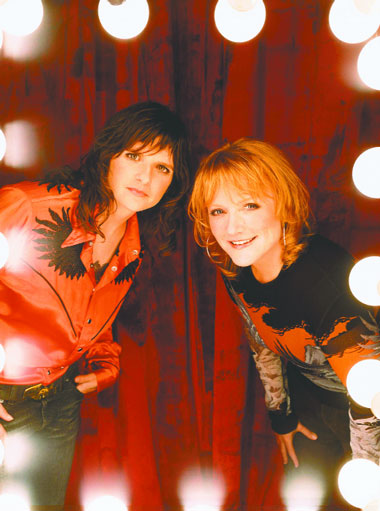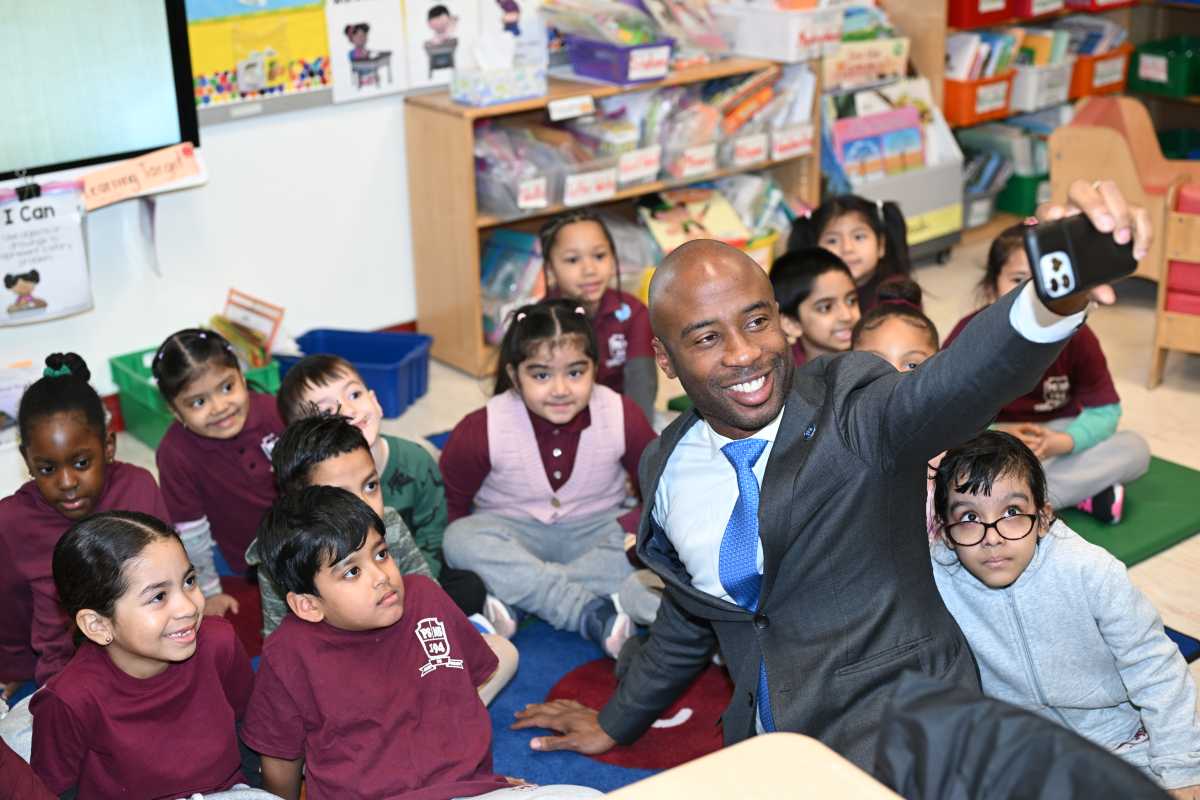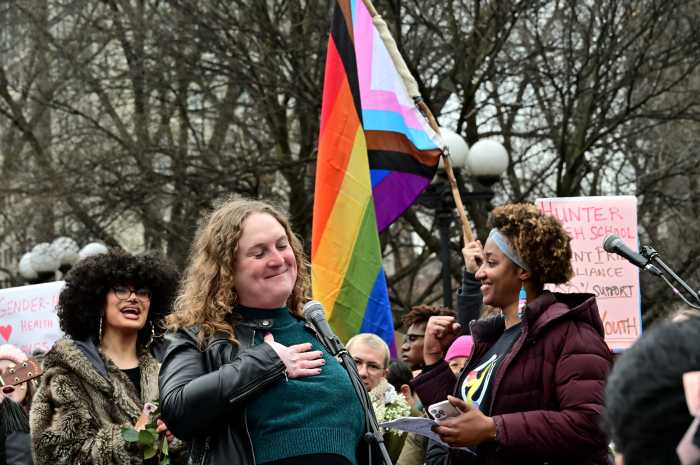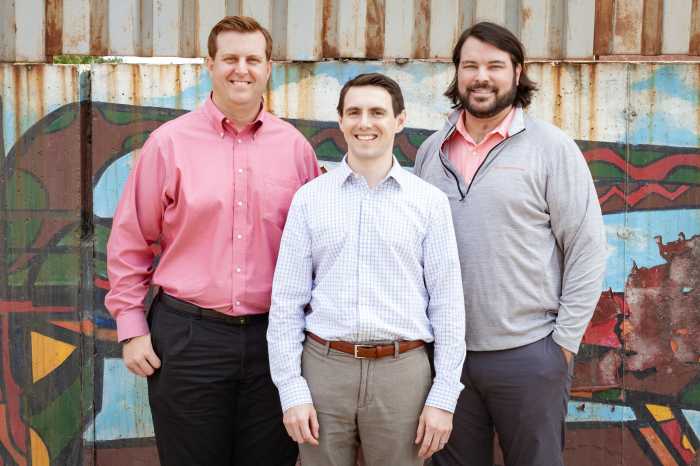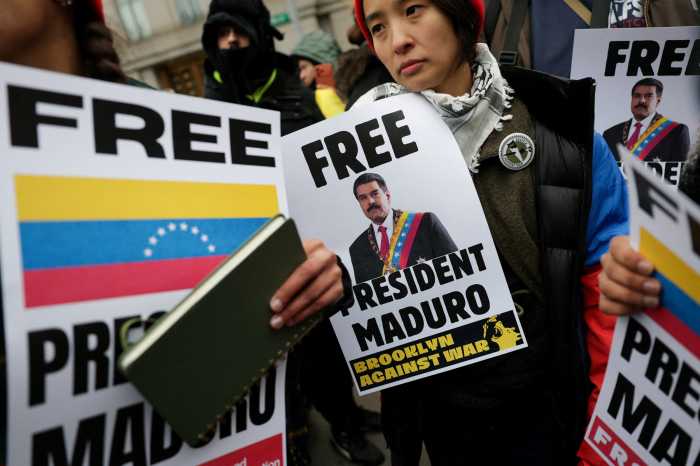Atlanta-based singers make no apologies for mixing music and politics
The Indigo Girls––Amy Ray and Emily Saliers––are happy to do their part in the fight for same-sex marriage rights, so long as the weapons are vegetarian-friendly.
“I wouldn’t take up arms,” insisted Saliers, “I’m not a violent person. But tofu ham––I might lob a big ol’ thing of tofu ham at the White House. I might be willing to be arrested with my block of tofu ham.”
Until then, the Atlanta-based girls are busy touring with their own new album, “All That We Let In” (Epic). Last we heard from the Indigos was 2002’s “Become You.” Producer Peter Collins and musicians Carol Isaacs, Clare Kenny, and Brady Blade re-joined the Girls at Georgia’s Sound Tree Studios.
“All That We Live In” is a lively, energized album filled with Indigo aural hallmarks like rich dueling guitars, soulful keyboards, and melodious vocal harmonies. It’s a bridge between the acoustic/folky “Become You” and 2000’s alt-rock tinged “Come On Now Social.”
And for the Birkenstock set, there are acoustic ballads in the mix, too. The writing of the album’s eleven songs was almost evenly split––five by Ray, six by Saliers.
“A lot of [our songs’] themes crossed over,” Saliers said. “Politics and social causes are going to emerge, which they did, so we have some thematic similarities. We also have some straight-up love songs. It’s not a concept album.”
However, a story does unify the album, one illustrated by comic book legend Jaime Hernandez, whose “Love & Rockets” comic series features queer characters. Ray, a big comics fan, asked Hernandez to illustrate the album’s cover/interior booklet, and he agreed.
“It’s the best packaging we’ve ever had and a great storyline,” Saliers said. “We’re very proud of it.”
Saliers described the strange Hernandez-drawn story, which involves a woman who plants statues from outer space in the desert, as “a metaphor for the beautiful miracles the universe can provide. If we keep our minds open to it and through hard work, diligence and reflection, it’s a profound experience. The cover art is this woman [balancing] on a pipe but to me it is a balance between nature and the destruction of nature. There are a lot of things going on there. Very spiritual.”
As for the songs, Ray’s love for reggae, ska, and The Clash inspired the bouncy, reggae-spiced “Heartache For Everyone.”
Asked about the album’s gentle title song, Saliers said, “It’s very personal but also universal. It talks about the details of life meeting, about planets falling and exploding. It’s an anti-war song. And it talks about things that have actually happened in my life with friends. In the end there’s the beauty and terror of life, they work hand in hand, but it can be painful at times.”
More pain can be found in the catchy first track, “Fill It Up Again,” a failed relationship story “in the disguise of an upbeat pop ditty.”
Interestingly, Saliers has enjoyed a very healthy relationship with her girlfriend for ten years now, so how does she keep coming up with such songs of unhappy, dysfunctional people?
“As a writer your eyes and ears are open all the time. You observe people and other relationships,” she explained. “You have empathy and I think a lot about what it would be like to be in certain situations. I watch a lot of films and read a lot of literature, so I pick up a lot of dysfunction. The movie ‘Monster’––that’s such a painful story. I’ve seen it a couple of times and it blew me away. Talk about dysfunctional and the worst painful relationship situation you can imagine––that’s the film to see. But bad relationships are all around us.”
Saliers took the time to contrast the difficulties she writes about with the strength of her own relationship.
“She’s a really wonderful person,” she said about her partner. “I like her personality. She’s always interesting to me. We have a lot of respect for each other. And we learn how to deal with being apart a lot because I travel all the time and we have enough independence to bring to the table to keep our relationship interesting. I found the right person and I’m very fortunate. But we work at it. You have to work at any relationship.”
Like Saliers’ longtime friendship and professional collaboration with Ray. The Indigo Girls origins are in a Decatur, Georgia elementary school. By 1981, the childhood friends laid down their first tracks and dubbed themselves “The B-Band” and, more austerely, “Saliers and Ray.”
The Indigo Girls officially came to be in 1985. Their eponymous album debut hit the racks in 1989, and over the course of nine albums they won a Grammy, multiple GLAMAs, and earned double platinum status.
The lesbians with acoustic guitars shifted gears and went electric with a bunch of talented friends on 1999’s “Come On Now Social,” which they recorded in London with producer John Reynolds, Sinead O’Connor’s backing band Ghostland, and guests Joan Osborne, Sheryl Crow, Me’Shell Ndegeocello, and Kate Schellenbach of Luscious Jackson.
Asked who she’d like to have guest star at some point in the future, Saliers said Stevie Wonder ranks high. Madonna is also welcome and “I wouldn’t mind singing with Mary J. Blige. She can sing the whole track, actually—I’ll sing backup.”
The Indigo Girls sound has evolved over the years, but one thing that remains consistent is their commitment to political activism in music and life. Voter registration booths are typically present at their tour venues. Lately, their activism has entailed fighting amendments to both the federal and state constitutions that would ban same-sex marriage or civil unions.
“Bush would be the first president of the U.S. to amend the Constitution in a way that is exclusive rather than inclusive,” Saliers said. “He needs to stop. What a legacy he’s dug already. The religious right does not control this country. It does not reflect the way most people feel spiritually. In Georgia a bill was introduced to ban gay marriage. The House just voted against it and they asked for a re-vote. So there was a rally [in Atlanta] I went to last week and there were all sorts of clergy [protesting] against the amendment, in support of the gay, lesbian, bisexual, transgender community. It’s very uplifting to see that there are other sides and that the Christian right doesn’t speak for all people of faith. That was encouraging.”
Saliers encourages “every known gay person in the public eye to take a stand” and fight for same-sex marriage rights.
“Kudos to Rosie!” she said. “I wish Amy and I had a more powerful voice in pop culture consciousness because it’s just so important that people realize we need to have our civil rights and we have to fight this religious right that’s dictating morality and mixing with politics.”
The question of whether Saliers herself plans to get hitched is a more private issue.
“If my partner and I want to we will and if not we won’t,” Saliers said. “I wouldn’t get married just to celebrate having won the right. I’m fighting for a civil right for all who want get married, but not everybody does and I respect that as well. I will stay in this fight until the end as if my life depends on it.”

